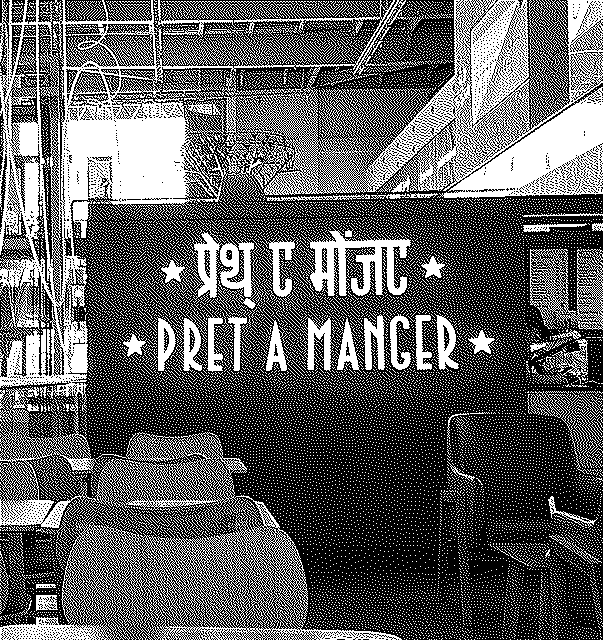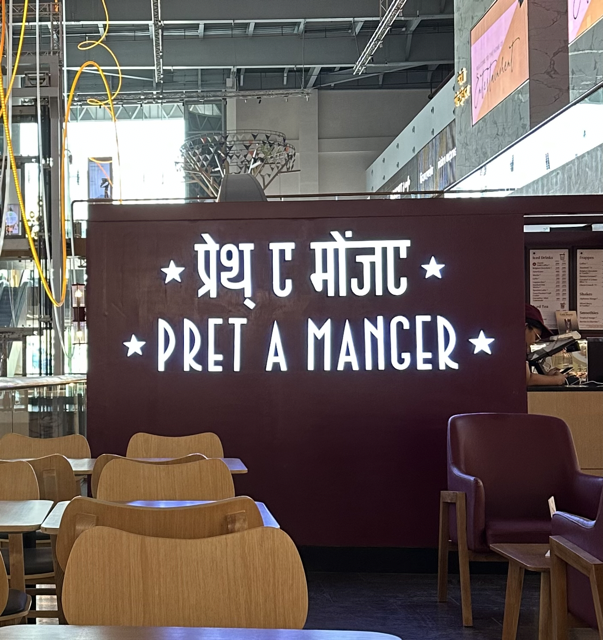Pret a Blogger
🗓 posted Oct 29, 2024 by Josh Erb🔢 317 words
🏷 #travel #india #brief
Today I find that I can't help but obsess over the linguistic journey and phonic mutation that this corporate branding represents:


For the uninitiated, Pret a Manger is a British fast food chain. Its name is a French phrase[1] that means "ready to eat". In the anglosphere, this name is already bastardized to a degree. Diacritics have been dropped and there are no hyphens between the words. Pronouncing it is difficult for English speakers. So much so that it is common to refer to the shop simply as "Pret" and leave it at that. As the chain expands to India, however, they need to transcribe the name into Devanagari. The act of doing this betrays the transcriber's understanding of what the original pronunciation should be.
So we're left with a rendition of the English mispronunciation of a French phrase. A lot of interesting choices were made in the transcription. The one that feels most notable to me is the use of ए to represent both the "à" and the ending of the word "manger". In French, these are two distinct sounds.[2]
I'm not quite sure why I find this so fascinating. I think because I assumed that transposing a French phrase into another writing system would allow the transcriber to more clearly indicate the correct pronunciation? Instead, the necessity of maintaining a consistent global brand identity[3] has caused the incorrect pronunciation to escape the confines of the Latin alphabet.
French lends an air of sophistication to the English speaking interlocutor and helps disguise the fact that this is basically the same business model as a 7-11 that set up some tables.
The "à" is pronounced like the "a" in "about", whereas the "-er" verb suffix is pronounced like the "a" in "face".
🤑 🤑 🤑
<< all notes.